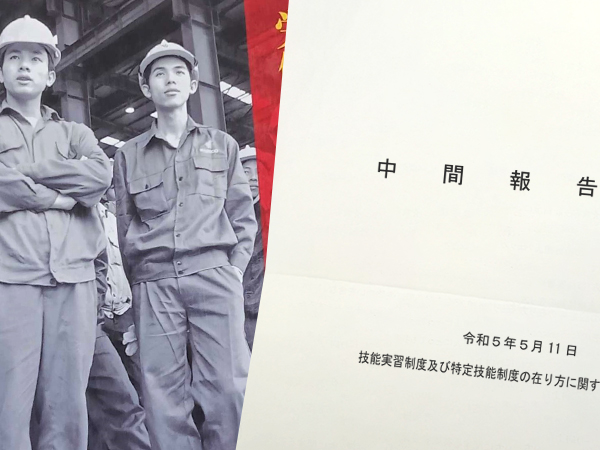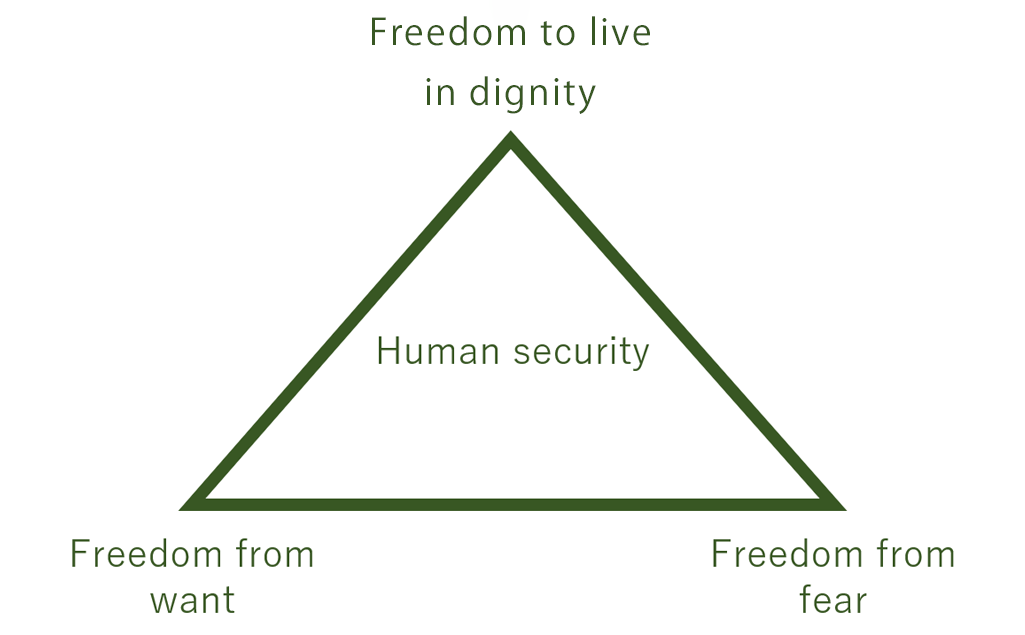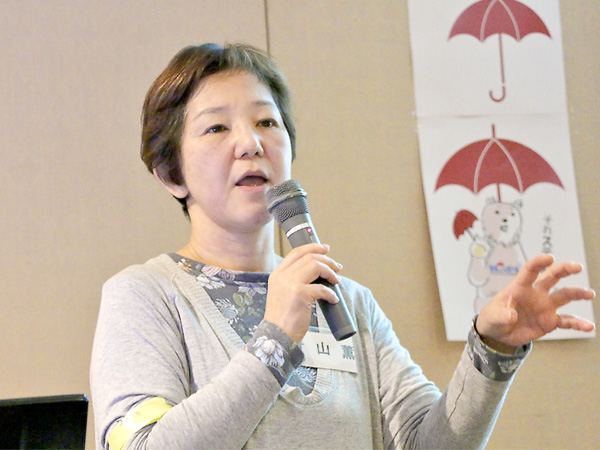
Kobe University fosters academic exchange with universities in many countries and has more than 1,000 international students. To support currently enrolled international students in finding their first post-graduation employment, the university has established a system that focuses on career development from a global perspective. We interviewed IKEMURA Akiko, a project associate professor who supported international students’ job-hunting activities at the Career Center and who has been involved in the Global Career Development Program at the Graduate School of Agricultural Science since 2023, about past efforts and achievements as well as about current projects.
Based on your experience in assisting international students in finding employment, what’s special about international students at Kobe University?
Ikemura:
One feature of Kobe University is that approximately 80% of its international students are graduate students. Undergraduates can plan for internships and job-hunting during their four years of study, but master’s degree programs are only two years long. From the time graduate students enter a master’s program, they must be aware of job-hunting in addition to carrying out research in their fields of specialization, so they need to balance both.
Attitudes toward finding a job in Japan vary among international students. Some international students with poor Japanese language skills presume that they cannot find a job in Japan. However, there are companies that will hire students lacking Japanese language skills as long as they are well versed in their field of expertise. Kobe University has a graduate school program that allows international students to graduate in English and many graduate students conduct their research exclusively in English. But there have been cases where Japanese companies recognize their expertise and employ them. As a supporter, we have been making efforts to match international students with companies, considering the career perspectives of individual students in their specialized fields and their Japanese language skills.
Job hunting seminars in English and company meetings for international students
What specific support did you set up during your time at the Career Center?
Ikemura:
Although it differs from country to country, year-round entry and job-based employment with clear job descriptions are common in other countries, rather than the mass hiring of new graduates and company-based employment with flexible assignments in Japan. Since international students tend to start job hunting activities later than Japanese students, we have organized seminars in English to provide basic knowledge such as the overall flow of job-hunting activities in Japan. In addition, we regularly held seminars from the perspective of international students. We hired international students who have received job offers from Japanese companies as research assistants and had them share their job-hunting experiences in their native languages.
It is common for Japanese students to apply to dozens of companies, but this fact surprises international students very much. At the seminars, we made efforts to broaden career options for international students by introducing them to Japanese companies that boast a global market share in specific fields, such as excellent B2B companies (companies mainly engaged in business-to-business transactions) in Hyogo Prefecture, whose names are not well known to international students.
We also held a global job fair for international students and exchange meetings between companies in Hyogo Prefecture and international students by working together with the faculty and staff from the Career Center and the Center for Global Education. We requested explanations and materials in English in advance for events attended by companies. In addition, creating flyers and event announcements in English for international students makes it easier for students with insufficient Japanese language skills to participate. We promoted the matching of international students and companies through these efforts.
When I started supporting international students at Kobe University in 2021, it was in the midst of the Covid-19 pandemic. It was difficult to hold face-to-face events, and international students tended to be isolated. Therefore, we made the most of online seminars and interviews to provide support tailored to each student.
The use of online tools also has advantages for students, making it easier for them to participate in company information sessions in distant areas such as the Tokyo metropolitan area without the burden of transportation expenses. There was a tendency that international students who made full use of online tools in their job search obtained job offers at a relatively early stage.
Do you have any message for international students who are looking for a job?
Ikemura:
I would like them to have confidence and value their strengths and their unique international perspectives. Some students with high Japanese language ability are too particular about honorifics and manners, saying, “I have to act like a Japanese person.” However, I think it is important for international students to have a global perspective.
We want them to enjoy their job-hunting activities, if possible, rather than having a narrow mindset of “I have to do this.” With this in mind, we value the time for exchange at seminars for international students, where we can talk freely. Even if they do not find a job while they are in school, there are cases where they receive a job offer after completing graduate school. I think it is important not to give up.
International collaboration on the theme of “food” and a metaverse campus

Kick-off event for the Project for Strengthening Universities’ Global Development Capabilities to Develop Global Human Resources under the Theme of “food” (March 15, 2024, at the Graduate School of Agricultural Science)
You are currently involved in a program at the Graduate School of Agricultural Science to strengthen international collaboration and develop global human resources. What kind of projects are you involved in?
Ikemura:
The program is on the theme of “food” and aims to develop human resources who can contribute to solving global issues of food, energy and global warming. It started in 2023 as part of the Ministry of Education, Culture, Sports, Science and Technology’s “Project for Strengthening Universities’ Global Development Capabilities” and has the goal to train 1,000 people as global human resources, including international students and domestic Kobe University students. Although the program mainly focuses on agriculture, various departments of Kobe University are involved, and we also collaborate with corporations and local governments.
Including the University of Nebraska-Lincoln, with which Kobe University has an academic exchange agreement, five partner universities in the U.S., Canada and the Philippines send students to each other’s campuses. Students who come to Kobe University study Japanese and then participate in internships at companies.
These students will gather experience within the Japanese food industry at food manufacturers planning to expand their business in the U.S. and at companies in Hyogo Prefecture that are actively hiring international students. Not only will the students learn, but they will also give presentations to the companies to share their opinions on food safety and security, food culture, etc. from the viewpoints of international students. We would like to make this an internship program that benefits both the companies and the students.
What kind of international collaboration and human resource development can we expect through this program in the future?
Ikemura:
We are aiming for collaboration between multiple partner universities rather than one-to-one collaborations between overseas partner universities and Kobe University. We also intend to build a Kobe University campus in a virtual space (metaverse) and establish a system that will allow students around the world to interact and discuss. Through this environment, we hope that students in Japan will acquire a global perspective and become capable of communicating their own ideas to the world.
I hope that students sent to Kobe University from overseas will deepen their interest in Japan through this program, with a view to future research at Kobe University’s graduate school or employment in Japan. I would be happy if many talented people are nurtured through this program and become a bridge between Japan and the world.

Resume
| April 2009 | Assistant professor, Faculty of Cultural and Historical Studies, Otemae University |
| April 2011 | Reseacher, Office of Employment Development and Support, Otemae University |
| March 2015 | Completed the doctoral program in literature, Graduate School of Letters, Kansai University |
| September 2018 | Coordinator, Ministry of Education, Culture, Sports, Science and Technology-commissioned “Foreign Student Employment Promotion Program” SUCCESS-Osaka, Division of International Affairs, Kansai University |
| March 2021 | Project assistant professor, Graduate School of Engineering and Career Center, Kobe University |
| April 2023 | Project associate professor at the Career Center, Kobe University |
| December 2023 | Project associate professor at the Graduate School of Agricultural Science, Kobe University |







